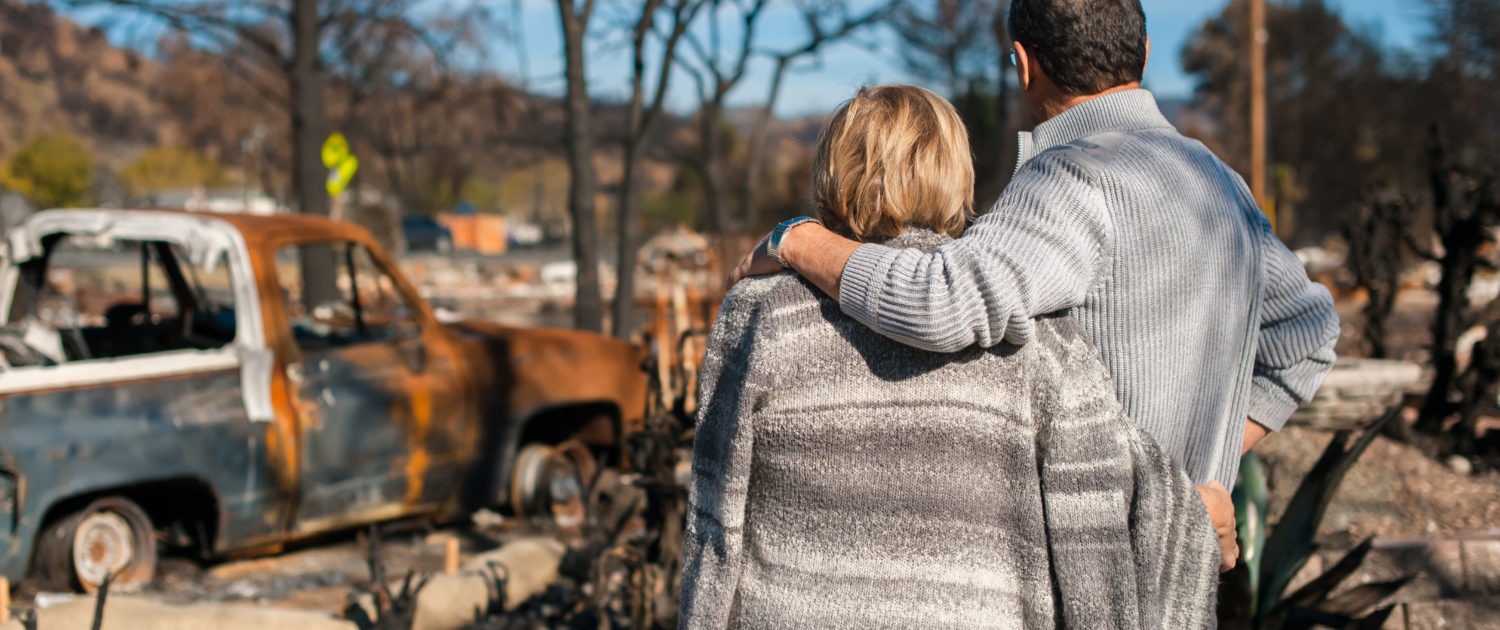
During Natural Disaster Season, Protect Yourself and Your Important Documents in Case Disaster Strikes
During natural disaster season, thunderstorms, tornadoes, hurricanes, and wildfires can cause extreme property damage and other hardships. To simplify recovery after disaster strikes, planning ahead and securing your financial, insurance, and personal documents is essential and will save you time and trouble as you deal with the disaster’s aftermath.
State attorneys general provide a range of information related to disaster preparedness, particularly how to avoid scams like fly by night contractors known as “storm chasers,” price gouging, or scam charities that take advantage of consumers’ generosity towards victims of a disaster. Natural disasters are different in every state, so click below to get useful information from your attorney general.
See below for other important advice to prepare for a disaster:
Review and Safeguard Important Documents
Gather all your important personal and financial records, including banking information, personal identification, legal documents, insurance and emergency phone numbers, and ownership records. For a checklist of necessary information, check out the Federal Emergency Management Association’s (FEMA) Emergency Financial First Aid Kit.
- Documents: Make a copy of the documents and store them someplace safe and secure.
- For physical copies, use a fireproof and waterproof container or rent a bank safe deposit box.
- If you make digital copies, always password protect them and put backup copies on a USB flash or hard drive and secure it with your other important papers.
- Insurance: Double check your insurance policy to fully understand the scope of coverage.
- Note that many homeowner’s and renter’s insurance policies do not cover events like earthquakes, wildfires, or floods. Consider obtaining additional coverage for these risks.
- Valuables: Create an inventory of your valuables by taking photos of the expensive items to avoid disputes with your insurance company after a disaster.
- Small Businesses: For small business owners: develop an emergency plan, back up your computer systems regularly, determine how you plan to communicate with employees and customers, assemble a disaster supply kit including a portable generator, and identify community warning systems.
- Tax Information: If any tax information is lost, you can request a copy of your tax returns and other information from the IRS using Form 4506.
- More Information: Check out the disaster planning guidance from the Consumer Financial Protection Bureau, the Internal Revenue Service, or the Federal Trade Commission.
Preparing Yourself for a Disaster
- Be Prepared: Make a plan to prepare for emergencies and discuss it with your household. This includes:
- Learning about emergency alerts,
- Making a shelter plan,
- Knowing your evacuation route,
- Creating a family communication plan, and
- Updating your emergency supply kit.
- Special Needs: Consider the specific needs of your household (e.g., pets, medical needs, disabilities etc.)
- Discuss: Review your plan and practice with your household annually.
- More Information: FEMA has created a list of advice and tips to prepare for all types of disasters.
Avoid Scams
- Sham Charities: Scammers create fake charities preying on consumers’ altruism after a disaster, or may ask for funds on behalf of a legitimate charity, but use it for nefarious purposes instead of giving it to the charity.
- Consumers should look out for charities that are reluctant to provide information about their identity, costs, and how the donation will be used.
- Before making a contribution, consumers should look up an organization on various charity evaluation websites:
- Fly-by-Night Contractors: Another popular scamming strategy is to show up to someone’s home as a repair person and offer to fix damaged property.
- Scammers may claim to be roofers, carpenters, electricians or other tradesmen and demand payment upfront, then disappear.
- Consumers should always ask for proof of contractor licenses, workers compensation insurance, written estimates, and scope of work in detail as well as a copy of the contractor’s ID before hiring them. Never pay in advance for work.








